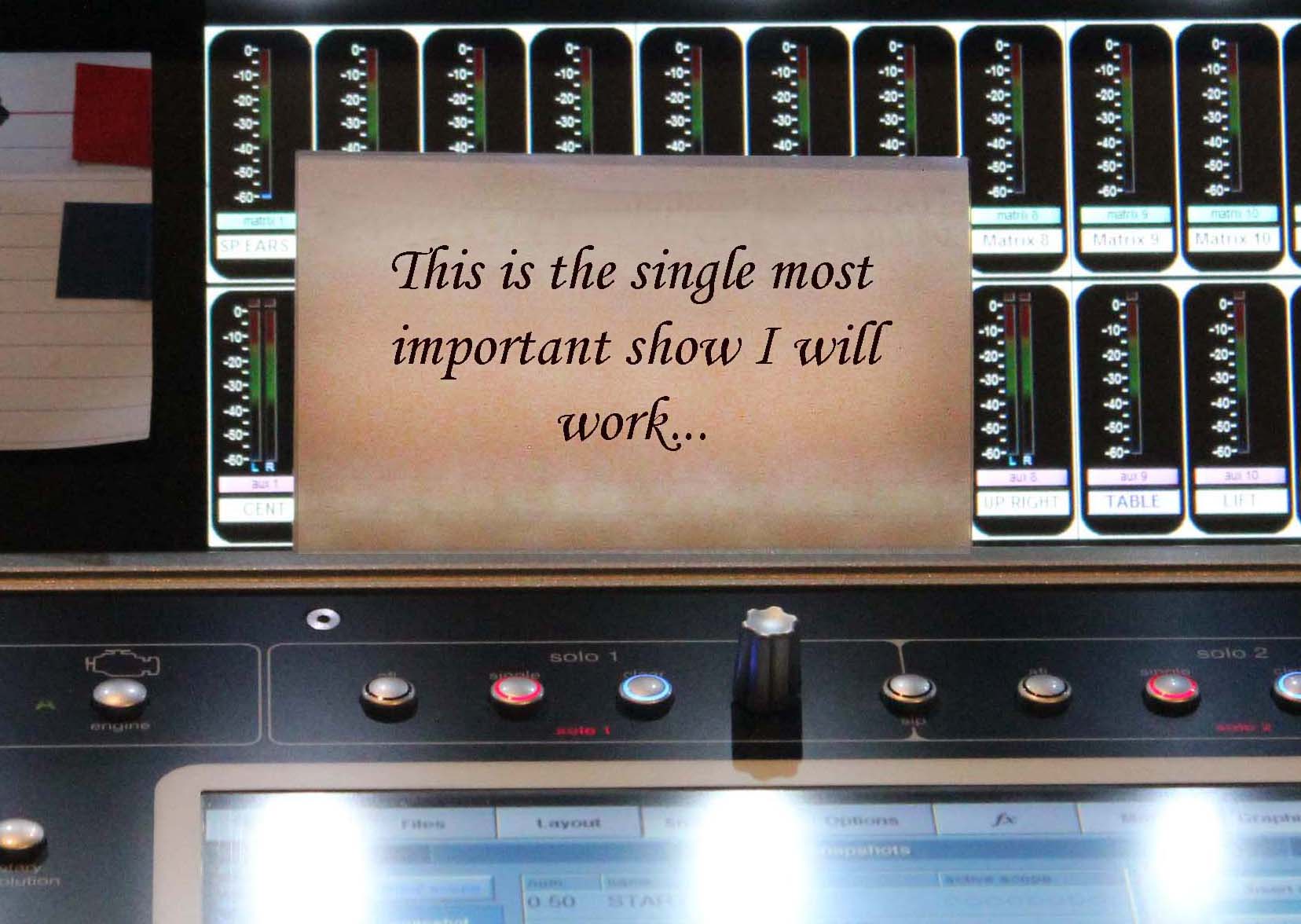Quick, what’s your dream gig? Don’t think too hard, just go with the first name that comes to mind. Mine’s Paul McCartney. My second pick would be Demi Lovato, but the Lovato Check doesn’t sound as cool. (Sorry, Demi – I’d still love to work on your show!)
Imagine working on a show for whichever artist(s) you selected. You’d show up early, be well-dressed, prepared and ready to work. The care with which you’d do your job would be manifest in every aspect of the gig.
You’d make sure each cable run was run neatly, cases were clearly labeled, the front of house area was organized and tidy, and generally do the best job you could possibly do. You’d bring your A game, pull out all the stops, go for the gold, turn it to 11, insert cliché here. (Reach for the stars! The sky’s the limit!)
Allow me to posit that after you land your dream gig is way, way, too late to start turning out your best work. In fact, I’d say that the best way to land that gig is to treat every single show as if it were a show for your favorite artist.
Because every single show could be the one where the tour manager is so impressed with your work that she calls you a week later when the A1 is hunched over in the hotel shower in fits of cripplingly painful gastric distress brought on by a late-night visit to the discount lobster joint across the street from the venue. (It happens to the best of us.) Your last show becomes as important as your business card.
I approach every single event like it could be the one that gets me that phone call. Because it might. So the last item on my pre-show checklist is the McCartney Check. It’s simple: I pretend that the promoter just called me on the radio and said, “Hey, by the way, Paul McCartney’s going to be at the show tonight and he wants to do a couple of songs.” Then I look around the venue. Is there anything I want to change? If I see a crooked monitor, some tangled pipe and drape, or a sloppy cable run, I go fix it.
The effect of this is two-fold. First, it keeps me accountable to myself, in terms of ensuring the integrity of my work. It means I don’t get lazy or cut corners. Taking this level of professional care and pride is a positive feedback loop: it becomes easier and more natural the more it’s done. I seek to constantly elevate my own standards of work.
Second, I become more mindful of my work in the moment as well as during the process itself. If I run the cable cleanly the first time, I won’t have to go back and fix it during my McCartney Check. In essence, I McCartney Check every moment. This heightened level of care and consideration becomes second-nature over time, which means that eventually all of my work will become on par with my best work.
Now, you could certainly accuse me of being unrealistic. Of course, we’ve all worked gigs on low-quality or broken gear, in shoddy venues, or with incompetent or unprofessional people around us. That’s, unfortunately, part of the job, and that’s not likely to change any time soon. But none of that has to affect how I carry myself on the job, or the quality of work that I personally do. I simply always do the best I can with what I have.
At your next even, I encourage you to try your own McCartney Check. Look around objectively and pretend Sir Paul (or Ed Sheeran) is about to walk in. Anything you want to change? Try doing this for your next 10 shows. If you commit to it, eventually the answer will be “No, I don’t need to change anything. Everything looks great and I’m ready to roll.”
And from there, it’s “Yes, sir, Mr. McCartney!”
















